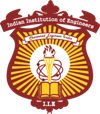About
A Division of aerospace engineering, aeronautical engineering focuses on applying physics, mathematics and other disciplines in order to construct aircraft. Aeronautical engineers work to make sure propulsion systems operate efficiently and that an aircraft’s aerodynamic performance is sufficient. Aspiring aeronautical engineers should get their bachelor’s degrees in aeronautical or aerospace engineering, though some related majors may be sufficient.
Although entry-level aerospace engineers in general do not require a license, higher-level positions may require a PE or professional engineering license.
Career
Once students have completed their core requirements, they may take more challenging classes that cover topics ranging from the aerodynamics of aeroplane bodies to electrical systems in cockpits. After covering the fundamentals of flight and stability control, students may delve into aircraft sensors and electrical components, as well as wing structure and flaps. Programs may also provide training in power generation for aircraft, including combustion engine design.
During the senior year of a bachelor’s in aerospace or aeronautical engineering, students generally participate in lab and design courses. These courses may require research into issues ranging from construction materials to wing design. While completing their assignments, students may be responsible for simulating flight and modifying areas where designs may not function well. Applying their knowledge, students may then alter models, test designs, and prepare class presentations.
Job Prospects
Aircraft Industry (HAL, Taneja Aerospace etc.)
Government and Private Airlines
R&D organizations like ISRO, DRDO, CSIR (NAL)
Opportunities are also present in International organizations like BOEING, AIRBUS, PRATT & WHITNEY, GE Aviation, NASA, ESA, etc.
Remuneration
According to the U.S. Bureau of Labor Statistics (BLS), job opportunities for aerospace engineers were projected to decrease by 2% from 2014-2024, which is slower than average. As of May 2015, aerospace engineers, including aeronautical engineers, made a median annual salary of $107,830, as reported by the BLS.
Course Structure
Part-I
| Subject Code | Subject Name | Download |
|---|---|---|
| 1.1 10001 | ENGINEERING MATHEMATICS | Download |
| 1.2 10002 | APPLIED PHYSICS | Download |
| 1.3 10003 | APPLIED CHEMISTRY | Download |
| 1.4 10004 | COMMUNICATION SKILL | Download |
| 1.5 10005 | ENGINEERING DRAWING | Download |
| 1.6 10006 | COMPUTER FUNDAMENTALS | Download |
| 1.7 10007 | TIME MANAGEMENT | Download |
| 1.8 10008 | MANUFACTURING PROCESS | Download |
| 1.9 10009 | ENGINEERING MECHANICS | Download |
Part-II
| Subject Code | Subject Name | Download |
|---|---|---|
| 2.1 30251 | STRENGTH OF MATERIALS | Download |
| 2.2 30252 | FLUID MECHANICS | Download |
| 2.3 30253 | MATERIAL SCIENCE & ENGINEERING | Download |
| 2.4 30254 | WORKSHOP TECHNOLOGY | Download |
| 2.5 30255 | ENVIRONMENTAL ENGINEERING | Download |
| 2.6 30256 | METROLOGY | Download |
| 2.7 30258 | TECHNICAL ENGINEERING DRAWING | Download |
| 2.8 30263 | THEORY OF MACHINES | Download |
| 2.9 30268 | MANFACTURING TECHNOLOGY | Download |
| 2.10 30270 | CNC MACHINE | Download |
| 2.11 30273 | THERMAL ENGINEERING | Download |
| 2.12 30291 | AUTO ENGINE COMPONENTS | Download |
| 2.13 30292 | AUTO DRAWING & C.A.D. | Download |
| 2.14 30293 | AUTO ELECTRIC EQUIPMENT | Download |
| 2.15 30294 | AUTO CHASIS & BODY | Download |
| 2.16 30269 | INTERNAL COMBUSTION ENGINE | Download |
| 2.17 30296 | NETWORK THEORY | Download |
| 2.18 30272 | POWER PLANT ENGINEERING | Download |
Project Work
Candidates are required to submit a Referee / Project Report to complete the requirement of the Technician Membership Examination (TMIIE-DIPIIE-DMIIE).
A candidate of the Technician Membership Examination (TMIIE-DIPIIE-DMIIE) can take up submission of his report only after he has obtained a pass in Part-I of the TMIIE-DIPIIE-DMIIE Examination and only after he/she has appeared and obtained40% marks in at least 5 subjects of Part-I of TMIIE-DIPIIE-DMIIE Examination.
Project Report / Referee Report
Each candidate appearing for Technician Membership Examination under the scheme of examination as approved by Govt. of India, is required to submit the Project Report in bound volumes.
Project Report detailed requirements and Project Report applications form is given in Institution website .The Project Report Application should be submitted with a fee.
Final pass Certificate will be issued only after Project Report is approved. Candidate is also required to pay certification fee and submit experience certificate for minimum period of 3½ years on employers letterhead.
Model Format for submission of Referee/ project report for TMIE-DIPIIE-DMIIE Examinations.
Note:
Academic Member needs to undertake Six months of practical training from A.I.C.T.E or applicable Polytechnic/College.


